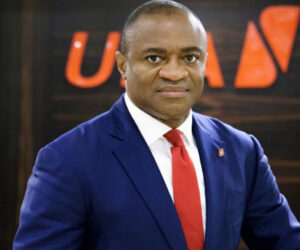There are high expectations of further rates’ cut by the Central Bank of Nigeria (CBN) as the monetary policy committee holds its meeting today and Tuesday.
This is coming on the heels of the drop in inflation. Nigeria’s inflation rate has continued to cool, falling to 16.05 per cent in October from 18.02 per cent in September 2025.
The inflation rate drop, according to analysts, was largely driven by the monetary policy easing and positive outcome of key reforms instituted by the Central Bank of Nigeria (CBN), which triggered continued FX stability, spike in foreign reserves to $46 billion.
SPONSOR AD
Experts predict the monetary policy easing cycle is expected to be sustained as the Monetary Policy Committee converges in Abuja on November 24th and 25th for its 303 meeting. CBN governor, Olayemi Cardoso had highlighted the positive impact of previous MPC decisions including making naira more competitive at the international markets, and improving investment climate for global investors.
The Central Bank of Nigeria (CBN) says ongoing policy easing and structural reforms are beginning to filter through to the broader economy, helping to stabilise the naira and ease lending rates.
For the bank, the recent monetary policy actions reflect a deliberate strategy to restore macroeconomic stability after years of fiscal and external pressures.
These developments reflect the commitment and focus of the Bank’s leadership in restoring stability to the financial system, adding that lower lending rates are emerging as one of the tangible outcomes of the CBN’s policy trajectory.
Previous easing
The CBN said alignment of fiscal and monetary policies is indispensable at a time when technological innovation and digital finance are rapidly transforming the financial landscape.
It would be recalled that the Monetary Policy Committee (MPC) of the Central Bank of Nigeria (CBN) has marginally trimmed the benchmark interest rate by 50 basis points, reducing it from 27.5% to 27%.
The decision was reached during the committee’s 302nd meeting, held on September 22 and 23, 2025 which has significantly led to inflation rate decline.
The move marks the first rate cut since the tightening cycle began, signaling a shift in policy direction as inflationary pressures begin to ease.
Already, the National Bureau of Statistics (NBS) said that in October 2025, Inflation reduced to 16.05 per cent from 18.02 per cent in September 2025. This was contained in the Consumer Price Index (CPI) Report of October.
NBS said, “In October 2025, the Headline inflation rate eased to 16.05% relative to the September 2025 headline inflation rate of 18.02%.”
On a year-on-year basis, NBS said the Headline inflation rate was 17.82 per cent lower than the rate recorded in October 2024 (33.88 per cent).
The report said this shows that the Headline inflation rate (year-on-year basis) decreased in October 2025 compared to the same month in the preceding year (i.e., October 2024), though with a different base year, November 2009 = 100.
NBS added, “On a month-on-month basis, the Headline inflation rate in October 2025 was 0.93%, which was 0.21% higher than the rate recorded in September 2025 (0.72%).
“This means that in October 2025, the rate of increase in the average price level was higher than the rate of increase in the average price level in September 2025.”
The ongoing moderation in inflation rate, rising competitiveness of the naira and growth in foreign reserves all point to a positive phase in Nigeria’s economic position.
The International Monetary Fund (IMF) relied on these indicators to project a 3.9 per cent growth for Nigeria in 2025 as well as expanded stability in the FX markets.
State of the naira
The naira has strengthened by 3.5 per cent against the U.S. dollar over the past ten months, reaching N1,450/$ at the parallel market.
This recovery, though modest, signals a crucial shift, driven by coordinated adjustments to fiscal and monetary policies by the Federal Ministry of Finance and the Central Bank of Nigeria (CBN).
The start of the year saw the Naira trading at around N1,555/$.
However, a brief period of instability saw the rate slip to a high of N1,597/$ by the end of April. The subsequent six months were marked by intense policy intervention. The naira briefly firmed up at N1,475/$ in October 2025 at the official market before settling at N1,500/$ at the parallel market yesterday, marking a 3.5 per cent gain from the January starting point.
CBN Governor Yemi Cardoso says naira is turning the corner, and becoming more competitive in the international markets.
He said Nigeria’s economy has been fully restructured and is now resilient, with huge buffers against global risks.
He spoke during the Intergovernmental Group of Twenty-Four (G-24) press briefing at the ongoing IMF/World Bank Annual Meetings in Washington DC, US.
Cardoso, who is the leader of the Nigeria delegation at the meetings, said the naira, has equally emerged as a competitive currency, with the economy witnessing positive trade balances and large businesses moving from imports to export of locally produced goods and commodities.
Views from other stakeholders
Ogbonna Ukuku, an investment analyst in an interview said there would be a lot of data-driven monitoring on the part of the MPC to see the effect of the last reduction on the economy.
“The target would also to be to look at the strategic intervention that the CBN has carried out with regards to foreign exchange market stability. That meeting would consider a few more things by looking at…we are entering into the festive season and that would mean there would be a lot of buying and that would also have some effect as regards the liquidity in the system and trying to also look at inflation. Also, they would look at the diaspora inflow that we have,” he said.
According to him, with inflation declining, he stated that the CBN might be a bit cautious in their easing strategy.
The Director-General of the West African Institute for Financial and Economic Management (WAIFEM) Dr. Baba Musa, has called on the government to ensure that 3.9 per cent growth for Nigeria in 2025 translates to decent jobs, rising incomes, improved productivity, and broader social welfare.
In his report presented at the recently concluded 2025 IMF/World Bank Annual Meetings in Washington DC, titled: “Nigeria’s Economic Outlook at a Turning Point”, he said as Nigeria moves further into 2025, Nigeria’s economic story is one of resilience, renewal and strategic recalibration.
Musa, who is also the President, Nigerian Economic Society, said Nigeria in 2025 is at a critical inflection point, cautiously optimistic yet structurally fragile.
“Gains in growth, inflation moderation, and investment confidence mark important progress, but the work is far from complete. To sustain the recovery, Nigeria must maintain macroeconomic stability, deepen structural reforms, and ensure that growth translates into tangible improvements for citizens. Achieving this requires collaboration among government, private sector, civil society, and development partners,” he said.
According to him, by committing to policy consistency, human capital investment, and inclusive growth, Nigeria can consolidate its recovery and emerge as a more competitive, resilient, and equitable economy in the years ahead.
“Globally, economies are grappling with slowing growth, projected at 2.7% in 2025 by the IMF for advanced economies, and heightened geopolitical risks that affect trade and investment. Against this backdrop, Nigeria has demonstrated remarkable determination. Domestically, inflationary pressures, infrastructure deficits, and unemployment persist, yet they now represent policy frontiers rather than defining constraints,” he said.
Musa said recent policy measures, ranging from fiscal consolidation to targeted monetary adjustments, have laid the groundwork for a sustainable growth trajectory.
“The real test, however, lies not only in achieving stability but in ensuring that it translates into tangible socio-economic outcomes: decent jobs, rising incomes, improved productivity, and broader social welfare.
If Nigeria deepens reforms, invests strategically in human capital, and leverages its structural advantages, the country can achieve not only recovery but inclusive and durable economic transformation,” he said.
He said the growth for Nigeria is underpinned by stronger oil production following operational improvements and policy reforms in the petroleum sector.
“Recovery in services, particularly telecommunications, financial services, and transport, reflecting resilient domestic demand. Improved agricultural output, thanks to favorable weather patterns and government support for mechanization and inputs,” he said.
He said the recent GDP rebasing has also given a more accurate reflection of the economy, capturing growth in high-potential sectors such as digital services, modular refining, and the creative industries. This expanded view highlights opportunities for job creation, innovation, and revenue generation that were previously underappreciated.
According to him, inflation remains elevated but is gradually moderating. “Headline inflation declined to 18.02 per cent in September 2025, down from 20.12 per cent in August, reflecting improved food supply, seasonal harvests, and targeted interventions in the energy market. The Central Bank of Nigeria’s interest rate cut, the first since 2020, signals a nuanced policy shift: a deliberate effort to balance price stability with growth and employment objectives. This approach is consistent with modern macroeconomic management, where inflation targeting is tempered by the need to stimulate investment and production in key sectors,” he said.
“Investor sentiment is improving, illustrated by Shell’s approval of the HI Offshore Gas Project, expected to supply 350 million standard cubic feet of gas per day to Nigeria LNG. Economically, such projects deliver multiplier effects: they stimulate domestic suppliers, create high-skill and semi-skilled jobs, and strengthen Nigeria’s position as a reliable energy hub in Africa. They also enhance balance of payments stability, by promoting export-oriented production,” he said.
Dr. Muda Yusuf, an economist and Chief Executive Officer, Centre for Protection of Private Enterprises (CPPE), stated that the MPC would look at the inflation situation in taking a decision.
He stated that the consistent trend of disinflation and consistent stability and appreciation in the exchange rate would determine the direction of the monetary policy.
“My expectation is that there would be a further marginal cut in rates in order to be consistent with the signaling that the Central Bank has commenced at its last monetary policy committee meeting,” he said.
As a Nigerian living here or in the diaspora, DO YOU HAVE A PLAN B? Just in case anything goes wrong, is there a side business you can fall back on? We show you step by step how you too can start earning US Dollars consistently. Nigerians can now make as much as $20,000 to $35,000 with premium domains. Ideal for business owners, entrepreneurs, and workers.
Click here to find out how it works








